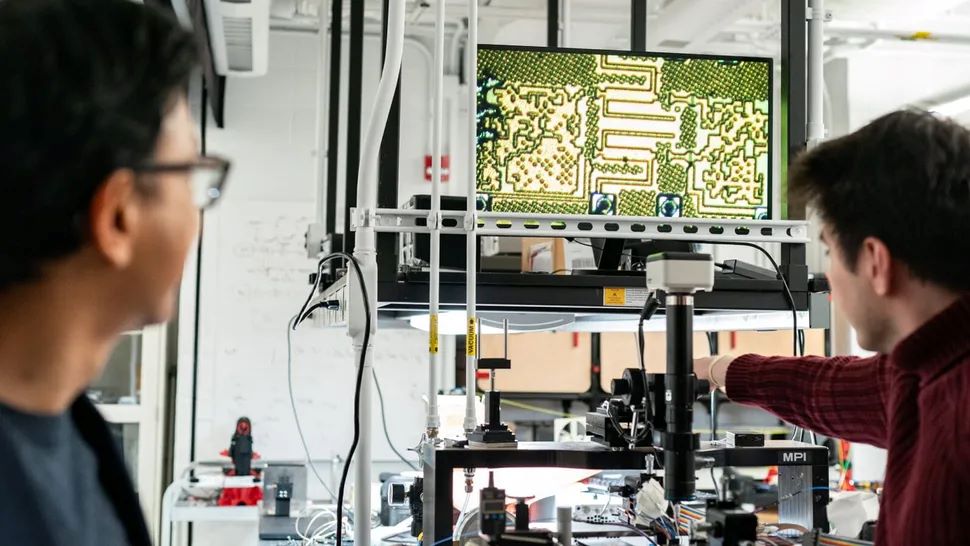AI designed in hours strange wireless chips that outperform human creations
Artificial intelligence has succeeded in designing wireless chips that outperform human-made versions — and it did so in a matter of hours. The findings, published in the journal Nature Communications, suggest that AI could revolutionize how next-generation electronics are built.
The study, led by researchers from Princeton University and the Indian Institute of Technology, focused on millimeter-wave (mmWave) wireless chips, the type used in 5G devices. These chips are notoriously difficult to design because of their tiny scale and complex electromagnetic behavior.

Princeton scientists examining the AI-engineered chip. Credit: Princeton University
Traditionally, engineers spend weeks fine-tuning chip layouts using experience and templates, improving them step by step through trial and error. The new AI approach skips that process entirely. Instead of following known design rules, the algorithm starts with a desired performance goal and works backward to generate the layout — a method known as inverse design.
“The resulting structures look randomly shaped,” lead author Kaushik Sengupta, professor of electrical and computer engineering at Princeton told LiveScience.
“Humans cannot really understand them.”
When the team manufactured the AI-designed chips, they discovered that the strange-looking patterns actually worked — and performed better than anything built by human designers. Some configurations offered higher energy efficiency, others greater speed or frequency range.
More to read:
Google’s new chip could control all Bitcoin, if it had a quantum computer
While the results are encouraging, AI isn’t actually ready to take over chip engineering entirely, the study authors noted. So far, many AI-generated designs failed in early testing, similar to the “hallucinations” seen in other generative AI systems. Therefore, human expertise was still needed to fix or discard those results.
The overall goals is not to replace human designers with tools but to enhance productivity with new tools, according to Sengupta.
Even so, the speed and creativity of the AI models could change the field. What once took weeks might soon take hours — and yield results no human could have imagined.
Needless to say, the findings could have major implications for the $4.5 billion mmWave chip industry, which is expected to triple in size over the next six years, if predictions from MordorIntelligence are correct.








